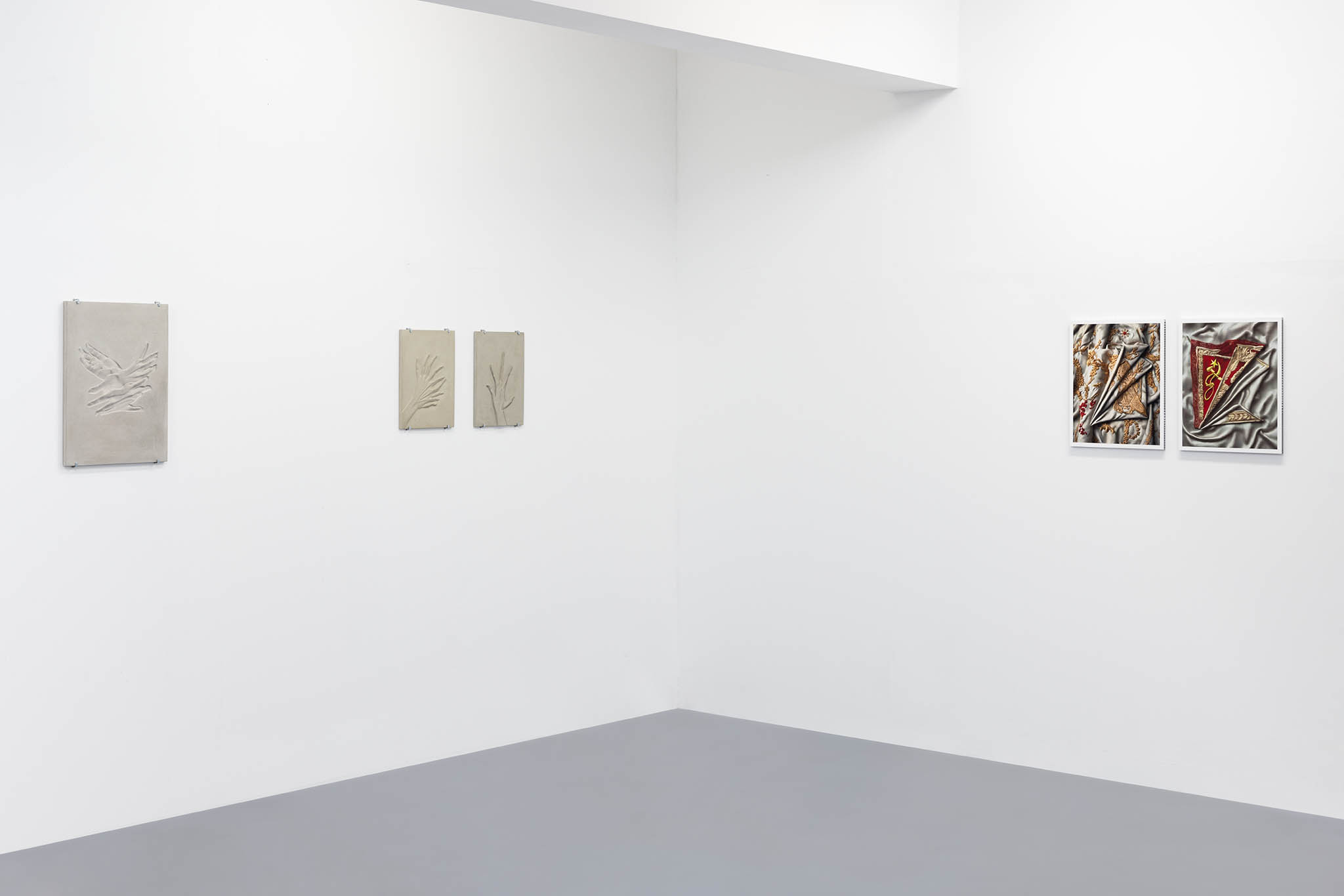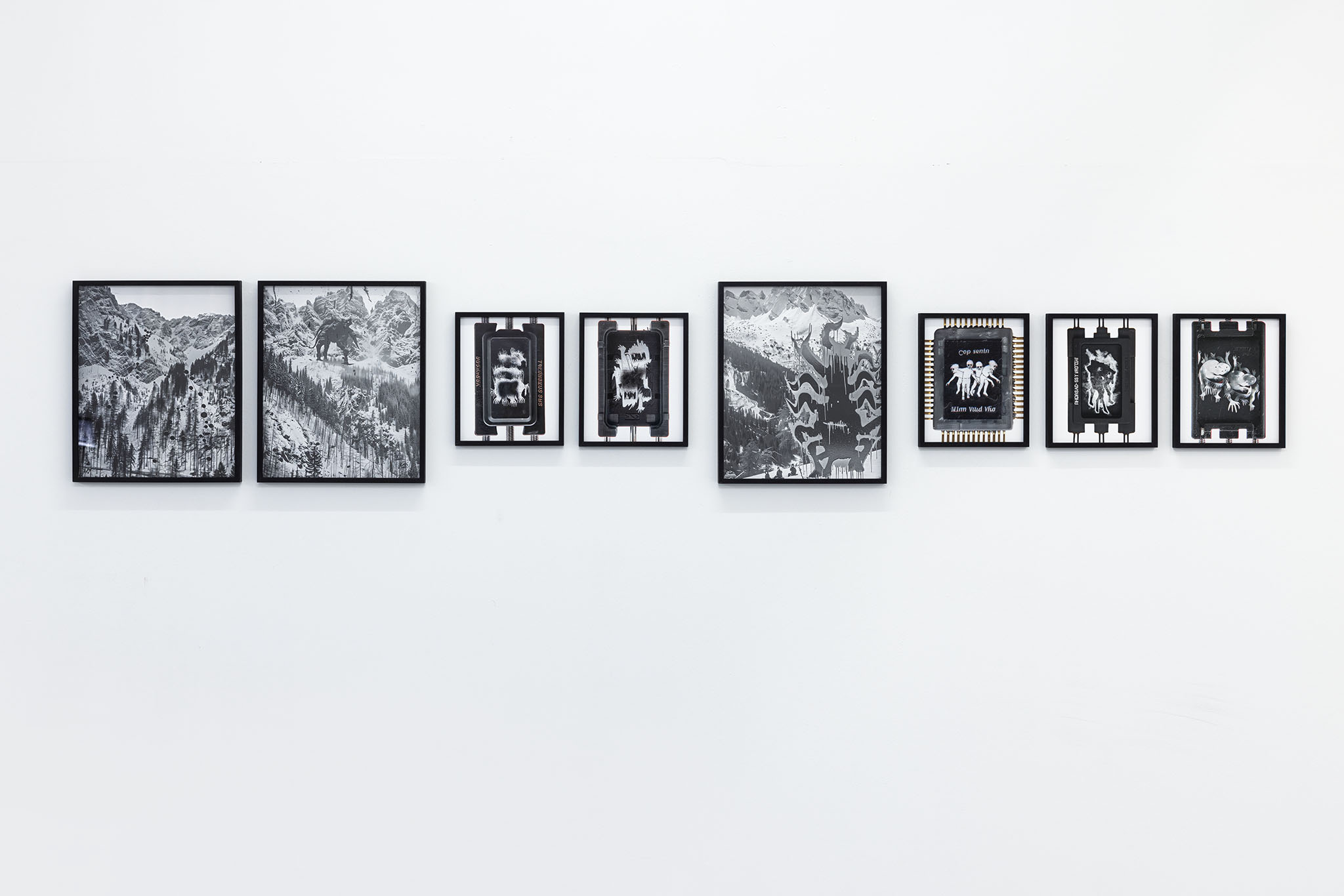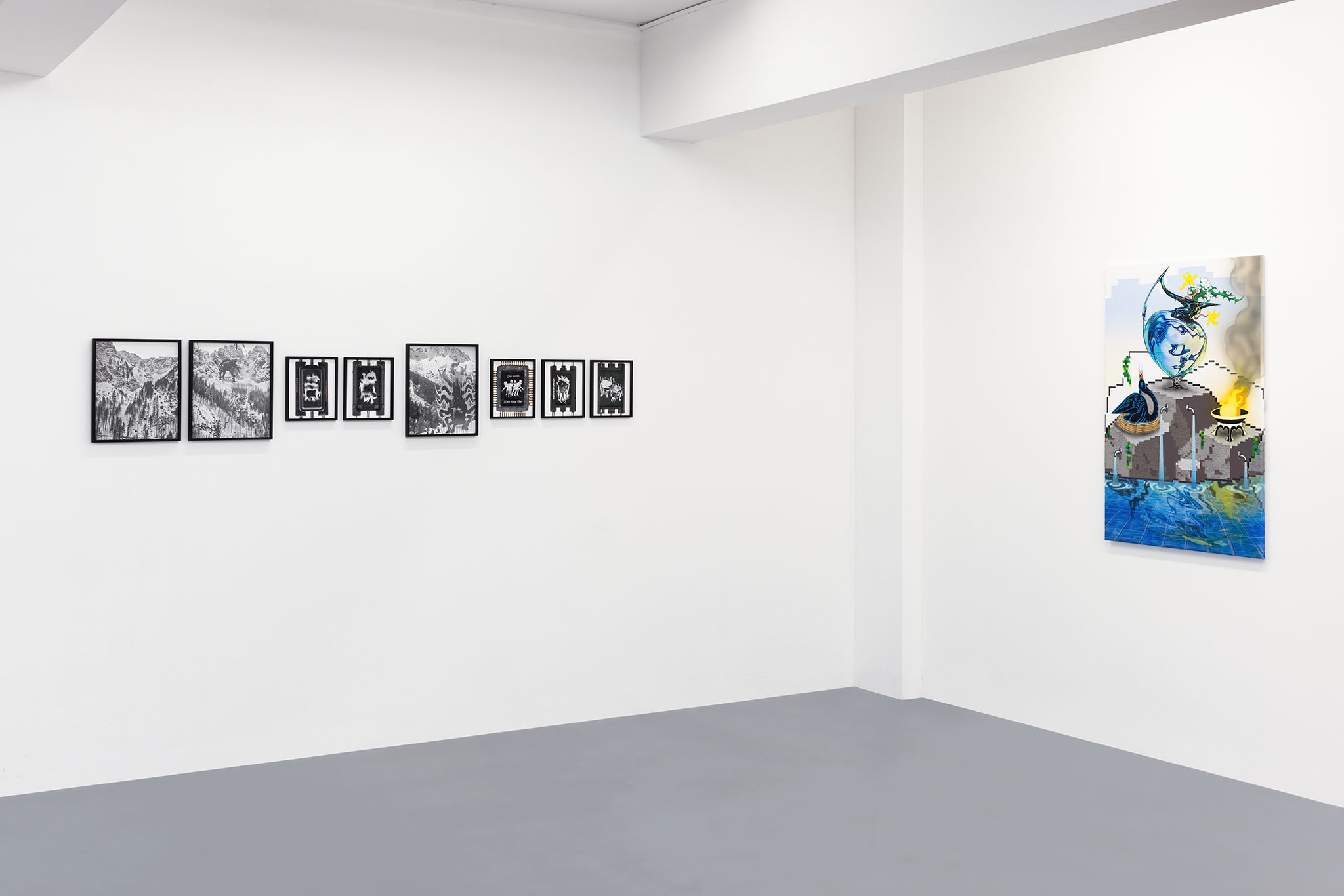No products in the cart.
SHIFT + CTRL – Artificial Intelligence
CONCEPT
Galerie Falko Alexander represents artists who deal with digitality in their works. However, this
programmatic orientation is not reduced to image worlds generated on the computer, but also
includes artistic processes in which digital aesthetics are thematized, even if the implementation
takes place in analog form. In addition, artists will be shown who deal with phenomena of reality
construction on the Internet and explore the question of the extent to which new technologies of
dissemination and selection of information influence our habits of perception and our understan-
ding of reality.
Gretchen Andrew manipulates systems of power with art, glitter and code. She is best known for
her playful hacks on major art world and political institutions, including Frieze, The Whitney Bien-
nial, Artforum, The Turner Prize, and The Next American President. In these digital performances
she reimagines reality with art and desire. She does this by making assemblage “vision boards”
that she programs to become top internet search results. The feminine and trivialized materials
of her vision boards purposefully clash with the male-dominated worlds of AI, programming, and
political control they also operate within. She trained in London with the artist Billy Childish from
2012-2017. In 2018 the V&A Museum released her book Search Engine Art. Gretchen’s work has
recently been featured in Fast Company, Flash Art, The Washington Post, Fortune Magazine,
Monopol, Wirtschaftswoche, The Los Angeles Times, and The Financial Times.
Chris Drange is best known for his large-format post-digital portraits and realist oil painting art-
works. Drange is a pioneer in modern contemporary art that depicts self-identification around the
mood and style of social media culture.
He specializes in court painting of modern-day influencers. His work is based on giving the di-
gital world (photographs) a reality, by adding emojis and by painting with oil medium on canvas.
His work has been featured in several exhibitions and magazines including Museum der bildende
Künste Leipzig, Kunstforum International, Numéro Berlin, New York Photography Awards Exhibi-
tion, Museum für moderne Kunst, Bremen.
Arno Beck’s prints and conceptual paintings evolve around digital aesthetics and focus on ana-
log production of digital images. Engaging with the language of digital culture the motifs are
based on low resolution computer graphics, games and interfaces. It is an interplay between the
contemporary digital screen world and traditional techniques.
Focusing on the analog production of computer generated imagery, he transforms those digital
images into the pictorial space, capturing digital aesthetics with painterly means. With his hand
he interferes where the machine claims its field of competence – humanizing technology and
making it less perfect. Due to the lengthy manufacturing process, the deceleration itself becomes
a main aspect in times of constant information overload and hasty screen based interactions.
The screen world rejects any kind of physically experienceable surface structure and with increa-
sing digitalization the human desire for haptic grows. Consequently, the transformation of those
screen based impressions and the



